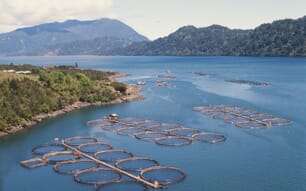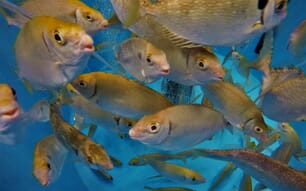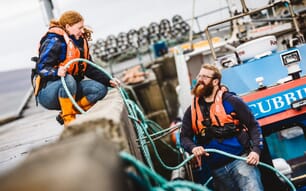One of the day's traditional topics is the fish disease survey, which summarises topical issues regarding the fish disease situation in Finland. Other topics include the impacts of overfeeding on the organs of fish, the results of a study on nematodes and a review of fish disease cases.
Fish disease survey and medical issues
Evira's disease surveillance and advisory services have been hampered by the fact that samples of diseased fish are not being sent to Evira for examination. Senior Researcher Pia Vennerström will describe the worrying current situation in fish disease research. Researchers are unable to obtain a reliable picture of the situation, for instance regarding the current status of resistance.
A review of the use of antibiotics will clarify the role of medication at fish farms in the Nordic Countries. In Finland, relatively low quantities of antibiotics are used, in comparison with other countries that mainly produce rainbow trout. The quantities of antibiotics used are even lower in Sweden, and the use of antibiotics has also been controlled in Norway. This is explained by long-term anti-disease efforts and efficient vaccination.
Impacts of overfeeding on fish organs
Overfeeding may occur in terms of the total amount of nutrition, or in relation to an individual group of nutrients. In general terms, the best nutrition for fish feed largely corresponds to the nutrient composition found in specimens caught in the wild. Researcher Satu Viljamaa-Dirks's presentation focused on problems associated with fish overfeeding. Feeding influences the disease resistance of fish, either directly in the form of a deficiency in the required nutrients or due to an imbalance of nutrients, or indirectly by increasing stress levels.
Results of the Cod Worm project
The cod worm project studied the quantities of nematodes in fishing waters off the Finnish coast. These sea fish nematodes can infect humans. Senior Researcher, PhD Perttu Koski will publish the results of the cod worm project.
Fish disease cases in 2013
Among the topical cases of fish disease presented will be the news release in the summer of 2013 on discovery of the Sarcocystis parasite in farmed rainbow trout in Sweden. This was the first occasion on which a parasite of this kind had been detected in fish anywhere in the world. In addition, researcher Anna Maria Eriksson-Kallio gave a presentation on the serious infection, in October 2013, of farmed Arctic char by the PKD parasite (Proliferative Kidney Disease). In addition, in reference to one of the disease cases of 2013, there will be a presentation on IPN, an infectious pancreatic necrosis caused by a tenacious virus which is difficult to eradicate.




